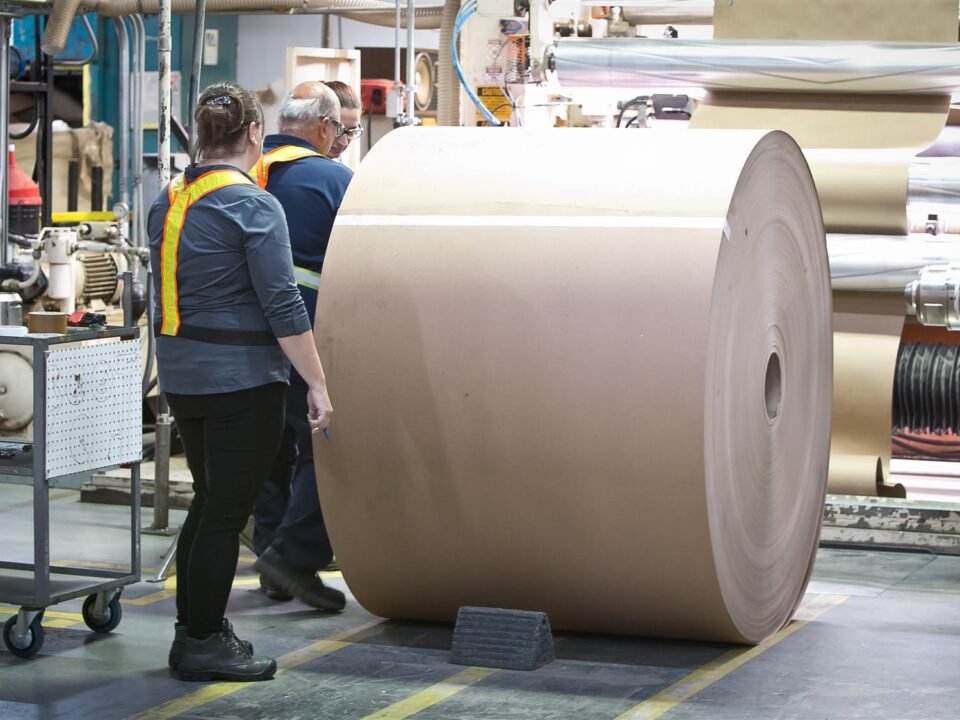
Lessons Learned: Key Takeaways from Long Falls Paperboard’s Journey
August 12, 2024
Corporate Responsibility After Closure: Continuing Commitment Beyond Business
August 21, 2024The Future of Paper: Innovations That Are Shaping the Industry
The paper industry is on the brink of a transformative era, propelled by significant technological advancements and increasing environmental consciousness. Innovations in recycling processes, the development of biodegradable materials, and the integration of digital technologies are reshaping this age-old industry. These changes not only promise to enhance the sustainability of paper production but also to revitalize its role in a digital-dominated world. This article explores the cutting-edge technologies and innovative practices that could have been inspired by or might have benefited the legacy of Long Falls Paperboard.
Enhanced Recycling Techniques
Recycling has always been a cornerstone of sustainable paper production. However, recent advancements are setting new standards for efficiency and sustainability. New processes now allow for the recycling of fibers previously deemed non-recyclable, thus significantly reducing waste and the need for virgin materials. These methods involve advanced sorting technologies that can more accurately separate paper grades and remove contaminants, leading to higher quality recycled paper.
Lesson from Long Falls Paperboard: The company's early adoption of rigorous recycling protocols highlighted the importance of sustainable practices in paper manufacturing. Modern advancements build on this foundation, pushing towards zero-waste manufacturing processes that are both eco-friendly and economically viable.
Biodegradable and Plant-based Materials
As the world moves towards reducing plastic usage, the paper industry is innovating with biodegradable alternatives that offer similar functionalities without harming the environment. Research is increasingly focusing on plant-based papers that integrate materials like hemp, bamboo, and other fast-growing plants, which are not only more sustainable but also reduce the industry's reliance on traditional wood pulp.
Influence of Long Falls Paperboard: The company was known for its commitment to sustainability, exploring materials that would lessen environmental impact. The push towards biodegradable materials is a continuation of this ethos, reflecting an industry-wide shift towards more sustainable resources.
Digital Integration and Smart Manufacturing
Digital technology integration, or Industry 4.0, is revolutionizing the paper manufacturing sector. Smart factories equipped with IoT sensors and AI-driven analytics can optimize energy use, streamline production processes, and enhance product quality. These technologies allow for real-time monitoring and control, leading to greater efficiency and lower costs.
Echoes of Long Falls Paperboard: Long Falls Paperboard’s early integration of digital systems in its operational framework set the stage for further digital advancements in the industry. Today’s smart manufacturing efforts build on these early innovations, driving forward the digital transformation of the paper industry.
3D Printing with Paper
3D printing technology is opening new avenues for paper usage. Researchers are now developing 3D printing techniques that utilize paper as a primary resource, creating objects from recycled paper materials. This not only provides an eco-friendly use of waste paper but also diversifies the potential applications of paper in industrial design and architecture.
Legacy of Long Falls Paperboard: While Long Falls Paperboard was not directly involved in 3D printing, its focus on innovative uses of paper materials and processes lays the groundwork for such forward-thinking applications.
Conclusion
The future of the paper industry is being shaped by continuous innovation and a strong commitment to sustainability. Technologies that enhance recycling, reduce environmental impact, and incorporate digital advancements are leading the way. As the industry evolves, the legacy of companies like Long Falls Paperboard, with their pioneering work in sustainability and operational efficiency, continues to inspire new generations of innovations. These advancements not only ensure the industry's relevance in the future but also its role as a leader in sustainable manufacturing practices.
This dynamic landscape of the paper industry promises not only to meet the environmental challenges of today but also to redefine what is possible in the world of sustainable materials and digital manufacturing.





